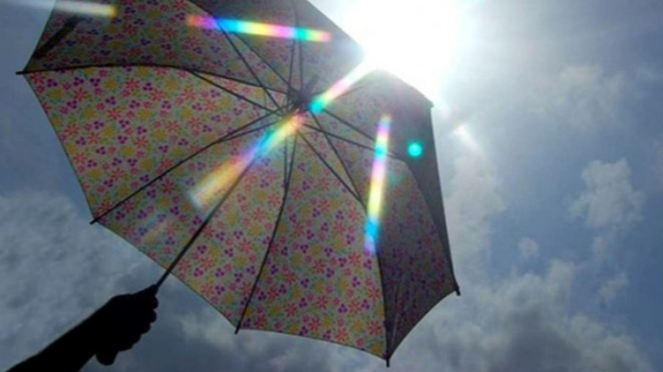How Indonesia is Battling Extreme UV Radiation as Recent Heatwave

- Pixabay
VIVA – As Indonesian people are experiencing heatwave lately, the Meteorology and Climatology Agency (BMKG) announced on Friday that extreme ultraviolet (UV) rays have hit several regions in Indonesia, including the capital city of Jakarta.
From the agency data, it is stated that the very high and extreme UV index occurs when the intensity of solar radiation is highest during the day, between 12 pm to 3 pm local time. And will move down to the low category in the afternoon. This pattern depends on the geographical location and elevation of a place, the position of the sun, the type of surface, and the cloud cover.
"For locations with general weather conditions predicted to be sunny-cloudy in the morning until noon can potentially cause the UV index in the very high and extreme categories during the day," the BMKG wrote as quoted from the official website on Friday.

Ilustrasi cuaca panas.
- U-Report
So far, it is not yet known for sure how long Indonesia will be hit by this extreme UV radiation. Here, is an appeal from BMKG to battle this incident.
1. Extreme danger level for people exposed to the sun unprotected, all precautions are required as skin and eyes can be damaged and burnt within minutes.
2. Avoid sun exposure between 10 am and 4 pm.
3. Stay in the shade during the hottest part of the day.
4. Wear sun-protective clothing, a wide-brimmed hat, and sunglasses that block UV rays when outdoors.
5. Apply SPF 30+ sunscreen moisturizer every 2 hours even on cloudy days, after swimming or sweating.
6. Bright surfaces, such as sand, water, and snow, will increase UV exposure.
As information, ultraviolet light is the electromagnetic wave portion of solar radiation energy in the 100-400 nm band. Solar radiation that reaches the Earth's surface is around 100 nm to 1 mm in wavelength.
The World Meteorological Organization (WMO) writes that lack of sunlight will affect mood and also increase the threat of vitamin D deficiency. However, if you get excessive sun exposure, it will not good for your health.

